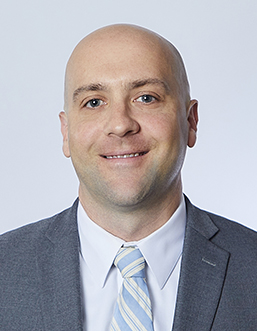In addition to the proposed changes to the collateral source rule discussed in last week’s article, the Missouri Legislature is also working toward significant changes to the standard for the admission of expert witness testimony. Currently, pursuant to RSMo § 490.065, witnesses can be qualified as experts and permitted to offer opinions if they possess “knowledge, skill, experience, training, or education” that could help the jury understand scientific or technical issues. House Bill 153 and Senate Bill 200 seek to overhaul § 490.065 to make the requirements for the admission of expert opinion testimony more stringent. HB 153 passed the Missouri House of Representatives and was sent to the Missouri Senate on February 2, 2017, and SB 200 remains before the Senate Government Reform Committee. The two bills are very similar.
The proposed amendment of § 490.065 is in response to concerns that Missouri Courts permit the admission into evidence of “junk science,” i.e. opinions that are not supported by sufficient empiric study or analysis. HB 153 and SB 200 amend § 490.065 to, generally speaking, require that proposed expert testimony must be based on sufficient facts or data and must be the product of reliable principle and methods. The expert opinion must also be based on a reliable application of scientific principles and methods to the facts of the case.
These bills impose the requirements set forth in Federal Rules of Evidence 702 – 705, commonly referred to as Daubertstandard, derived from the U.S. Supreme Court’s 1993 holding in Daubert v. Merrell Dow Pharmaceuticals, Inc. In the opinions of Federal Courts applying these Rules and the Daubert holding to specific circumstances, there already exists a body of common law to Missouri Courts to rely on when interpreting the proposed amendments to § 490.065. TheDaubert Court tasked Federal District Court Judges with the responsibility of acting as “gatekeepers” to exclude unreliable expert testimony, and the Missouri Legislature appears to be trying to impose that same duty on Missouri judges.
Detractors fear that these changes will clog already overloaded Court dockets with motions seeking to bar expert witnesses and to dismiss those actions in which expert testimony is excluded. Should all or a substantial part of either of these bills pass, it is almost certain that trial judges would see some measure of an increase in pre-trial motions seeking to preclude expert testimony because such motions are very difficult to win under the current scheme. Additionally, opponents believe that more stringent standards would make it more expensive and more difficult for injured parties to hire experts. This is an interesting position, as it at least somewhat supports the reason for the amendment, i.e. to rid Missouri of so-called experts that are willing to take unreasonable positions simply for their own profit.
In practice, stricter standards for expert testimony will affect both plaintiffs and defendants. Plaintiffs will have to make sure that the experts they hire can pass muster, or risk incurring the significant time and expense litigating a matter into the expert discovery phase only to see their case dismissed. Things will change for defense counsel as well, emphasizing early identification and resolution of cases of probable liability. The exclusion of a defense expert shortly before trial would make it very difficult to resolve the case favorably for the defense. Litigators in medical negligence cases need to stay abreast of these changes, and adapt their practice, in order to successfully represent their clients’ interests.
